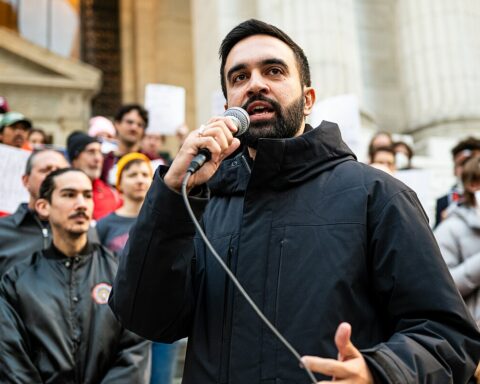Democratic lawmakers in California are advancing a series of controversial bills this session that critics say signal a troubling trend in criminal justice, welfare enforcement, and Second Amendment restrictions.
Among the most debated proposals is a measure introduced by state Sen. Lola Smallwood-Cuevas that would reduce penalties for certain welfare fraud offenses.
Under the bill, residents accused of welfare fraud involving amounts under $25,000 due to administrative mistakes would be shielded from immediate criminal prosecution.
The bill aims to shift some cases from the courtroom to internal agency investigations, citing what proponents describe as a need to reform how California handles minor bureaucratic missteps in its public assistance programs.
“California’s safety net should lift families up, not trap them in poverty,” Smallwood-Cuevas told Fox News Digital.
She claimed that current laws allow families to be criminally charged over minor filing errors even in the absence of malicious intent.
“Right now, a missed deadline or paperwork mistake can lead to felony charges that tear families apart — even when there’s no intent to deceive.”
On social media, she reiterated the purpose of the legislation: “This bill is about keeping families out of the criminal justice system from making administrative errors on raising the threshold for welfare fraud prosecutions.”
The bill has garnered support from the SEIU labor union and various welfare rights advocacy groups.
However, strong opposition has come from law enforcement bodies, including the California District Attorneys Association and the San Bernardino County Sheriff’s Department.
Supporters of the bill point to demographic disparities in welfare fraud enforcement. Citing a study that found three-quarters of welfare fraud convictions involved women, with half of arrests affecting Black and Hispanic women, advocates argue the system disproportionately impacts vulnerable groups.
Despite tens of thousands of fraud referrals annually in Los Angeles County alone, only a small fraction end in prosecution. The Department of Social Services reports that out of 15,000 to 20,000 yearly referrals, only 200 are forwarded to the District Attorney’s office, with about 95% leading to convictions.
While some lawmakers push to lessen penalties for fraud, California Democrats have drawn criticism for blocking legislation aimed at protecting minors from sex trafficking.
This week, Democrats on the Public Safety Committee voted against a bill that would have made it a felony to purchase sex from minors aged 16 and 17.
According to a Politico report, some committee members raised concerns that the law could be misused against members of the LGBTQ community or those in interracial relationships.
The bill’s rejection follows widespread public outrage last year when Democrats previously killed a bill that would have imposed stiffer penalties on child sex traffickers.
Meanwhile, Democrats are also targeting firearms. Senate Bill 704, sponsored by state Sen. Jesse Arreguín, would mandate background checks for purchases of individual gun barrels, including replacement or upgraded barrels for legally owned firearms.
The proposal represents a new phase in the crackdown on so-called “ghost guns,” untraceable firearms assembled from parts, by making it illegal to buy a barrel without passing a check.
The bill also outlines that the background check process would come with costs and create a new misdemeanor offense for violations.
In a separate move, lawmakers are addressing the state’s housing crisis, particularly among students, by considering legislation that would allow homeless college students to live in their vehicles on campus.
Assemblyman Corey Jackson, a Democrat, is championing a bill that would allow designated parking spaces at five California State University campuses and 20 community colleges to be used as overnight shelter for students living in cars.
The legislation, passed by the Assembly Higher Education Committee along party lines, would require implementation of the pilot program by July 2025.
The initiative follows a report from the California Legislative Analyst’s Office indicating that nearly half a million community college students experienced homelessness in 2023.
Jackson’s proposal would provide students with access to parking on school grounds, suggesting campuses offer a safer alternative to sleeping on city streets.









